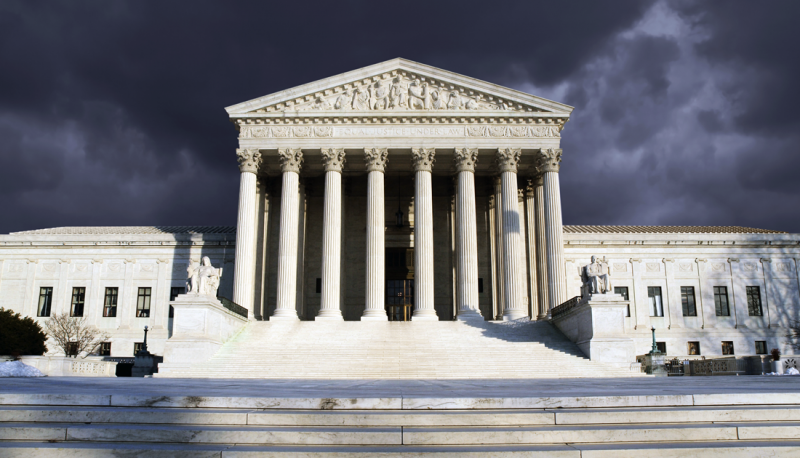“Confirmed Judges, Confirmed Fears” is a blog series documenting the harmful impact of President Trump’s judges on Americans’ rights and liberties. Cases in the series can be found by issue and by judge at this link.
On the last day of the term, in a 6-3 decision made possible by the three Trump justices, the Supreme Court struck down a California law requiring nonprofits to report (but not publicly disclose) their major donors to state authorities. But rather than addressing the specific facts before them in Americans For Prosperity v. Bonta, the conservatives issued a sweeping ruling that threatens to undermine traditional campaign contribution disclosure requirements.
To help prevent fraud, California requires charities to file with the state attorney general a copy of their federal tax return, which lists their major donors. The law prevents the public from having access to the information, but there have been significant data breaches in the past. Two conservative organizations challenged the law as violating their First Amendment political association rights. They claimed that potential contributors were intimidated from giving because they feared repercussions if their donations were to be made public. To support their position, the organizations cited a 1950s Supreme Court decision striking down an Alabama law requiring disclosure of all members of the NAACP, a law that was clearly intended to intimidate racial justice advocates in an environment where opponents of segregation were brutally targeted with state-sanctioned violence.
In an opinion written by Chief Justice Roberts, the conservative justices gave the organizations what they wanted, and more. They did not just rule that the law as applied to these groups under these circumstances violates their First Amendment associational rights, which groups such as the ACLU and NAACP Legal Defense and Educational Fund had argued in an amicus brief. Instead, the chief justice (joined by Justices Alito, Gorsuch, Kavanaugh, and Barrett) issued a far broader ruling, declaring that the California law is “facially unconstitutional,” meaning it violates the First Amendment under any and all circumstances. In their reading of the Constitution, confidential reporting requirements automatically impose burdens on the right to associate even if there is no risk of public disclosure, and even if public disclosure would not be harmful. (Justice Thomas agreed that the law is unconstitutional, but only “as applied.”)
Justice Sotomayor wrote the dissent, joined by Justices Breyer and Kagan. She pointed out that the majority was discarding a requirement going back decades that in order to show a burden on one’s rights to associate under the First Amendment, one must demonstrate that disclosure will likely lead to threats, harassment, reprisals, or other objective harms. She also criticized the majority for adopting a “new rule” that every reporting or disclosure requirement be “narrowly tailored,” a test that has in the past been reserved for the “strict scrutiny” applicable to direct burdens on First Amendment rights.
She stated that the majority’s “analysis marks reporting and disclosure requirements with a bull’s-eye.” She elaborated:
Regulated entities who wish to avoid their obligations can do so by vaguely waving toward First Amendment “privacy concerns.” … It does not matter if not a single individual risks experiencing a single reprisal from disclosure, or if the vast majority of those affected would happily comply. That is all irrelevant to the Court’s determination that California’s Schedule B requirement is facially unconstitutional. Neither precedent nor common sense supports such a result.
As the dissent points out, the Court in 2010 rejected a facial challenge to a law requiring public disclosure of who had signed a petition to get an item opposing domestic partnerships placed on the ballot for a public referendum. That was an 8-1 decision called Reed v. Doe citing the fact that since the typical referendum petition deals with much lower-profile issues where the burdens of disclosure feared by the anti-equality parties in that case are unlikely to materialize. That case cited another 8-1 decision issued earlier that same year: the part of Citizens United upholding campaign contribution disclosure requirements. Only Justice Thomas had dissented from those holdings.
Justice Sotomayor’s dissent stated:
That disclosure requirements directly burden associational rights has been the view of Justice Thomas, but it has never been the view of this Court.
Until now. As Rick Hasen stated in his Election Law Blog, “it will be much harder to sustain campaign finance disclosure laws going forward.”

